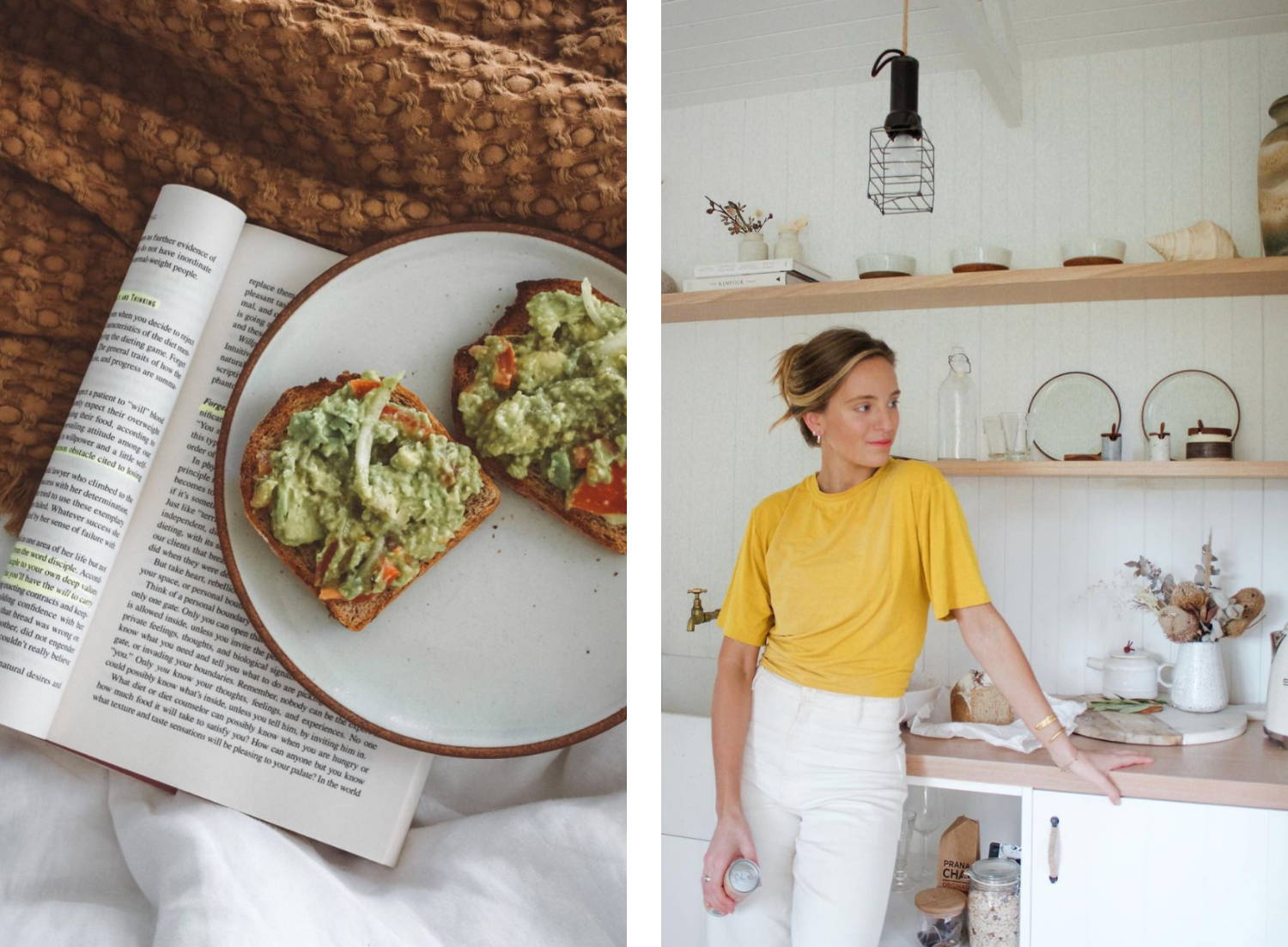Written by Stefanie Jung
Have you ever heard the saying "Questions are the answers?" Whenever you ask your brain a question, it will give you an answer, but the quality of your answer depends on the quality of your question. And when it comes to emotional eating, I think we have got the question all wrong. As a Health Coach focused on helping women heal their relationship to food and their bodies, a question I hear a lot is: “How do I stop emotional eating?”
Here’s the thing though: the way the question is worded implies that emotional eating is inherently bad and needs to be managed. And therein lies the flaw. Above all, emotional eating is a signal. A signal from our mind that there is something we are unwilling to feel or confront. So rather than seeing emotional eating as an annoying little nuisance that needs to be controlled, I invite you to start viewing it as a critical piece of information to help you understand yourself better.
Here are 3 things I’d like you to consider as you navigate through emotional eating:
1. Know that Emotional Eating is not a Sin.
When we become stressed, anxious, or worried, it’s only human to gravitate towards food to cope with our emotions. You are not alone in this, it’s a natural response. The best thing you can do after emotionally eating is to be kind to yourself, show yourself compassion and to take the time to explore why it happened. If your friend came to you and explained that she’s been emotionally eating, you wouldn’t yell at her and call her stupid, would you? So please don’t do that to yourself.
2. Ask Yourself: What are you Unwilling to Feel?
Instead of avoiding our feelings, we can do what is counterintuitive: welcome them and notice them and acknowledge that they don't need to be fixed. They just need to be felt. Feelings can be held, dissolved by naming them, their location can be felt in our bodies, and we can begin to realise that the part that fears the feeling is much bigger than the feeling itself.
If you're living with the notion that your emotions need to be fixed or that you are unable to tolerate the immenseness of your emotions, then you will always be numbing yourself or bolting your body. And the problem with turning to food is that afterwards, you are still left with the uncomfortable feeling, now you just have extra feelings of shame and guilt added on top of that.
So, get crystal clear on what you are unwilling to feel? Some of the best ways to do this is by:
· Taking yourself out on a solo walk
· Starting a journal practice
· Regular form of meditation
3. Check your Inner Food Police.
We all have an inner food police. It is that inner critic that judges our food choices harshly and decides if we have been “good” or “bad” based on what and how we ate. The problem with this inner food police is that if we are already having a bad day, and then eat one “bad” thing like a cupcake at work, we very easily fall into an absolutist way of thinking that goes something like this:
“Well…my day is already not going well and now I just blew it with that cupcake…I might as well just keep going since the day is already ruined.”
It’s this voice that makes us feel guilty and ashamed of our food behaviour and that often brings out the emotional eater within is, and it’s time to tackle that voice. Start challenging the voice by giving it a name and calling it out every time it pops up - giving it a name helps to disidentify from the voice and create some mental space. Then, remind yourself that you don’t have to listen to this voice and that you have the power to still turn your day around. One saying that always helps me is: “You don’t have to be the same person you were five minutes ago.” It reminds me that having a bad day or eating a bad food won’t get resolved by turning to food and that I always have the power to control the narrative.

GET IN TOUCH WITH STEFANIE:
Stefanie Jung is a Holistic Health Coach with a focus on helping women heal their relationship with food and their body. After having struggled with an eating disorder in her teens, she is deeply passionate about helping women unlearn toxic diet cultures and instead embrace and accept themselves unconditionally. Stef is also a 200h certified yoga teacher and passionate about sustainability.
website | www.wholesomestef.com
instagram | wholesomestef
